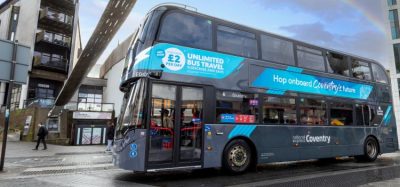IRU calls on support for road transport industry to drive economic recovery
- Like
- Digg
- Del
- Tumblr
- VKontakte
- Buffer
- Love This
- Odnoklassniki
- Meneame
- Blogger
- Amazon
- Yahoo Mail
- Gmail
- AOL
- Newsvine
- HackerNews
- Evernote
- MySpace
- Mail.ru
- Viadeo
- Line
- Comments
- Yummly
- SMS
- Viber
- Telegram
- Subscribe
- Skype
- Facebook Messenger
- Kakao
- LiveJournal
- Yammer
- Edgar
- Fintel
- Mix
- Instapaper
- Copy Link
Posted: 30 April 2020 | Sam Mehmet (Intelligent Transport)
The International Road Transport Union (IRU) has urged that road transport operators must be supported in order to drive broader global economic recovery from COVID-19.


The International Road Transport Union (IRU) has called on governments to ramp up efforts to support road transport operators so they can drive broader financial and social recovery.
IRU has reported that new findings have revealed the scale of impact that the COVID-19 pandemic has had on the over 3.5 million companies that provide road transport services around the world.
Passenger transport operator revenues have been decimated by up to 100 per cent during the confinement period, compared to the same period in 2019, according to the findings. This ranges from 50 per cent for urban bus, up to 80 per cent for scheduled intercity services, and up to 100 per cent for tourist and cross-border coach services.
“All over the world, commercial road transport companies, including millions of small and medium-sized firms, are struggling,” said Umberto de Pretto, IRU Secretary General. “Their most pressing problem is liquidity and many are now on the brink of bankruptcy, with financial difficulties expected to continue at least until 2022.
“Transport companies cannot be instantly switched-on as they require qualified safety and operational skills. Operator bankruptcies put the recovery of an entire economy at risk, as well as the steady return to social and community interaction.”
IRU has presented ‘key short-term measures’ for governments, international organisations and banks to keep road transport operators in business and supply and mobility chains running efficiently:
Financial:
- Provide direct cash grants to road transport companies, as temporary aid, which can be phased out as the situation improves
- Facilitate access to loans for covering variable costs (such as ongoing operational needs), refinancing of pre-existing credits for asset purchase (e.g. vehicle leases), and facilitate credits for the renewal of fleets at low or 0 per cent interest rates
- Facilitate delays to due dates for loan repayments and lease instalments
- Extend payment deadlines and/or temporarily reduce or waive taxes, charges and duties including corporate taxes, social contributions and fuel tax
- Facilitate reduction of insurance premiums and waive premiums for non-operational vehicles due to halted goods and passenger services
- Set-up financial support programmes for temporarily unemployed road transport workers and facilitate reintegration back into the transport workforce of skilled people made unemployed due to the crisis.
Non-financial:
- Establish green lanes for trucks to be implemented at all borders, backed by policies and procedures that prevent additional and systematic stopping of trucks at all borders
- Prioritise collective passenger transport, particularly for workers, with appropriate health protective measures put in place
- Designate road transport workers as key workers, giving them priority access to proper protection and disinfection equipment and material, which have not yet been made sufficiently available by governments
- Allow for maximum flexibility on the interpretation of driving rules, driving restrictions and tolerance measures to prolong the validity of expired control documents including visas, certificates, and licences.
“Drivers have risked their own health to bring food, medicine and essential workers to supermarkets and hospitals everywhere. Now, the industry itself needs help, so it can drive global economic recovery from COVID-19,” de Pretto added.
Related topics
Business Models, COVID-19, Transport Governance & Policy
Related organisations
International Road Transport Union (IRU)
Related people
Umberto de Pretto







